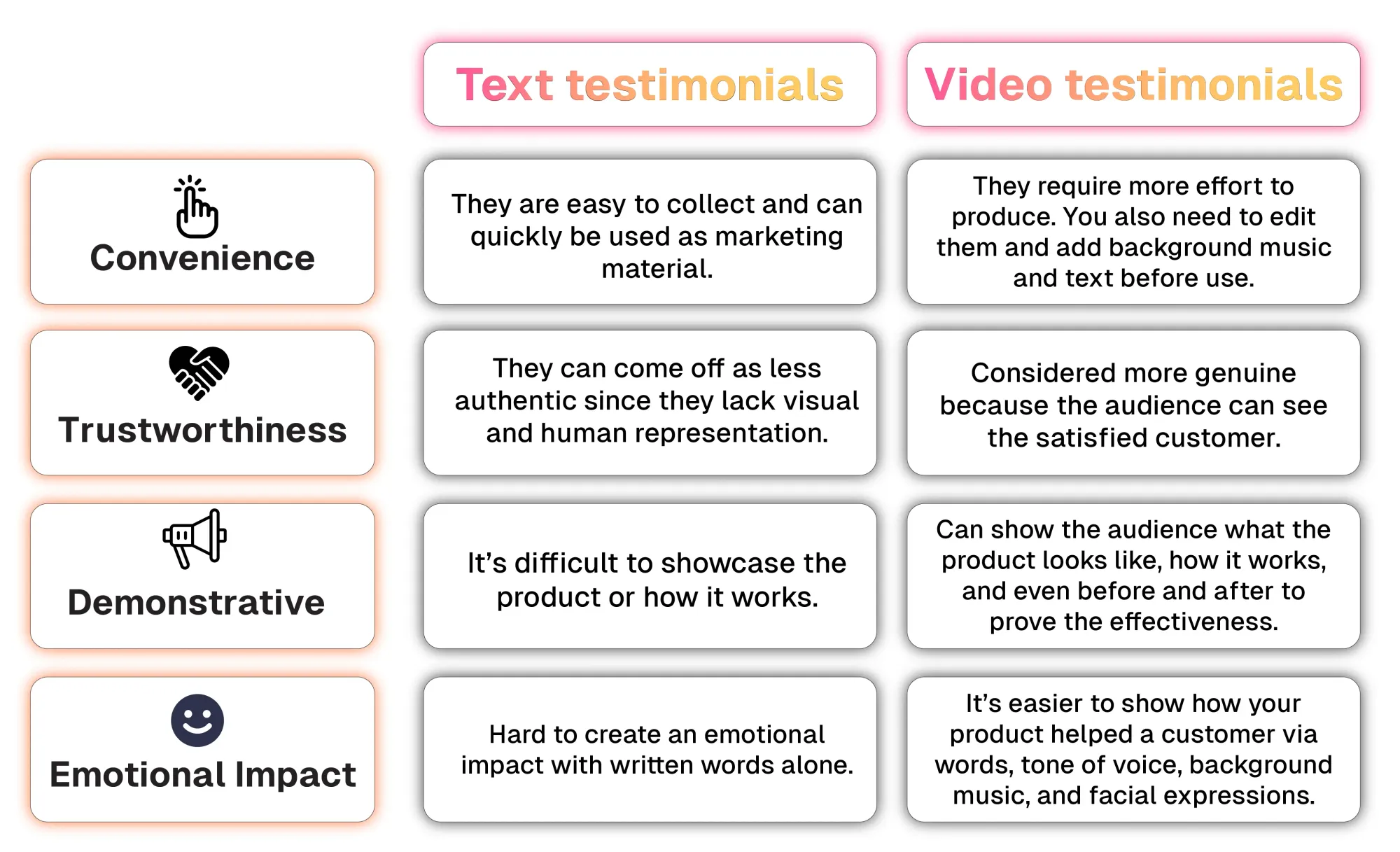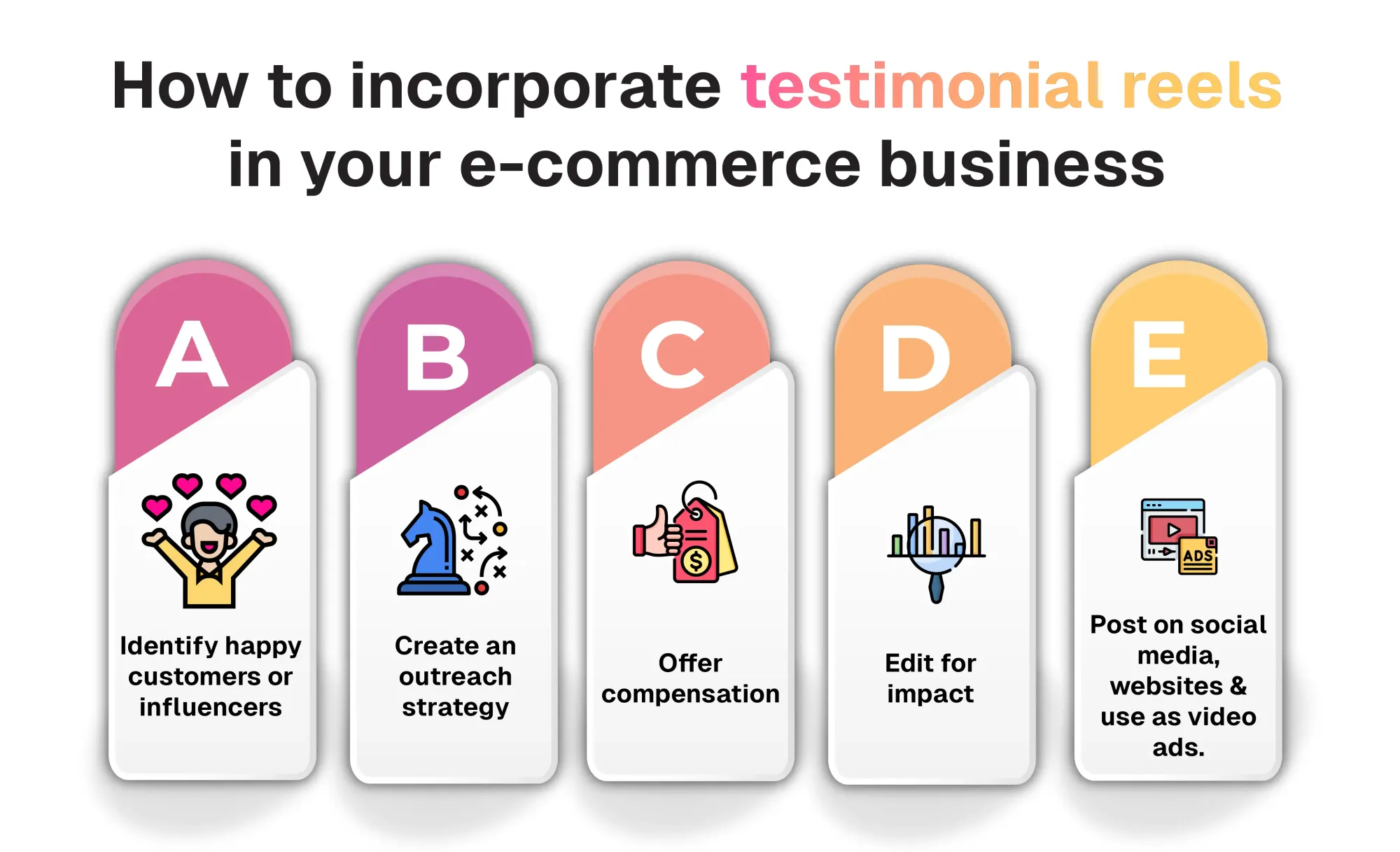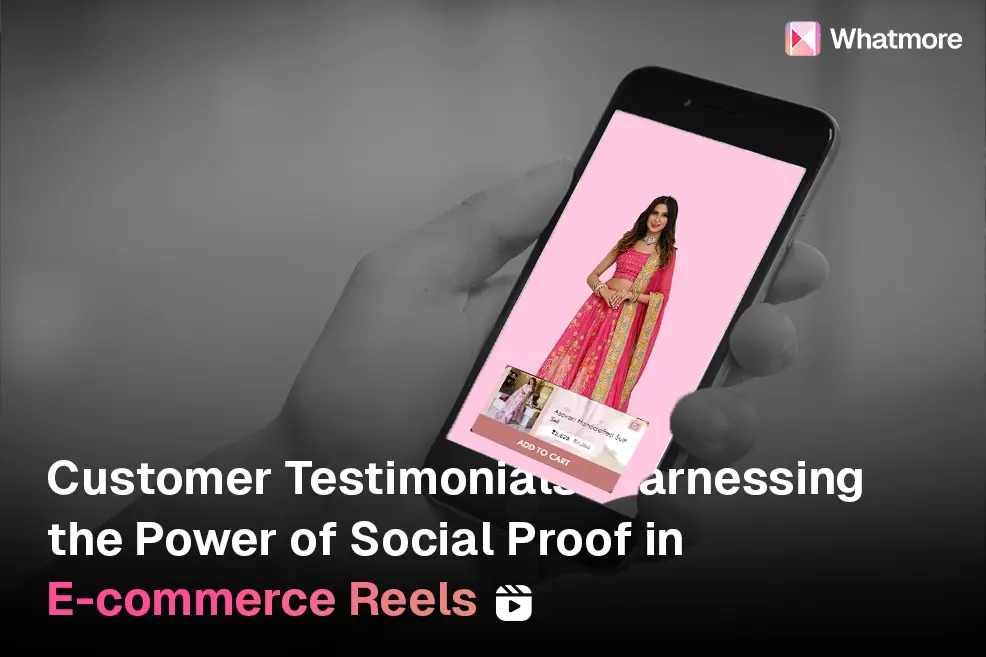“You HAVE to try this!” are the 5 most powerful words anyone can use for recommending a product. When was the last time someone said this to you and it didn’t make you curious? Probably never. Recommendations from friends, family, and strangers on the internet are an important part of our experience as consumers. Whether it's music, movies, products, or even a software, recommendations strongly influence our purchase decisions. 89% of people say that they trust recommendations from people over ads on TV and social media. This makes customer testimonials crucial for your e-commerce business.
Why do customer testimonials matter?
But first, what’s a customer testimonial? To put it simply,
A customer testimonial is an endorsement of your product from a happy customer. You can collect and present testimonials as a written review, case study, social media post, or video to increase your credibility with new customers.
Customer testimonials aren’t new. They’ve been around since the beginning of marketing in one form or another. They’re important because they serve as social proof.
Social Proof in Marketing
Social proof is a psychological concept “that people are influenced in their decision-making by others, compelling them to act within societal norms or expectations.”
In marketing, social proof gives prospective customers solid evidence that your product is popular, tried and tested, and useful for other customers. In 2022, Edelman Trust reported that ‘Trust’ in a brand is the top driver of business. It’s not surprising that
- 79% of people watch a video testimonial to know more about a product or a company, and
- 2 out of 3 people say they are more likely to buy a product after watching a testimonial video about how it helped another person like them
Customer testimonials as social proof are powerful because reading and watching other people’s experience with different products is a native part of our online lives. Your customers talking about how helpful your product is is the best way to drive curiosity and trust for your e-commerce trust. So what’s the best type of customer testimonial for your brand?
Text testimonials vs Video testimonials
Customer testimonials can broadly be divided into two- Text testimonials and Video testimonials. Text testimonials include written reviews, case studies, and social media posts.
Video testimonials include case study videos and e-commerce reels. Both have their pros and cons such as-

- Convenience:
- Text testimonials are easy to collect and can quickly be used as marketing material.
- Video testimonials require more effort to produce. You also need to edit them and add background music and text before use.
- Trustworthiness:
- Text testimonials may come off as less authentic since they lack visual and human representation.
- Video testimonials are usually considered more genuine because the audience can see the satisfied customer.
- Demonstrative:
- Text testimonials are not demonstrative since it’s difficult to showcase a product or how it works.
- Video testimonials show the audience what the product looks like, how it works, and even ‘before and after’ to prove its effectiveness.
- Emotional Impact:
- Text testimonials generally have a low emotional impact since it’s hard to create with written words alone.
- Video testimonials have a high emotional impact on the audience because it’s easier to show how your product helped a customer with facial expressions, tone of voice, and background music.
How to incorporate testimonial reels in your e-commerce marketing strategy
Incorporating video testimonials into your marketing strategy can help generate more sales for your e-commerce business. Whether it’s an authentic review by a satisfied customer or an influencer endorsement, these videos will help build credibility and trust in your brand. Here’s a simple step-by-step breakdown of how you can start.

- Identify happy customers or influencers
You can start by identifying customers who are happy with your products. Look for repeat buyers and customers who have left positive reviews. Reach out to them and ask if they’d like to talk about their experience with your product. At the same time, you can also reach out to influencers in your niche. They can help increase your reach and credibility since they’ve already built trust with their followers.
- Create an outreach strategy
Develop an outreach strategy based on the resources you have. Decide whether you’re reaching out to happy customers via WhatsApp, Email, DMs, or a phone call. Once you’ve identified your channels, create messages that are personalized to their purchase history and feedback. Clearly communicate the reason for the testimonial reel, and how you’ll be using it.
- Offer Compensation
Since you’re asking your customers to spend time creating a video for you, offering them compensation is the right thing to do. You can offer them coupons, discounts, or even free products. For influencers, consider paying them a fee that matches the value they’ll be bringing to your e-commerce brand.
- Edit for impact
Edit the footage you’ve collected to create a convincing and compelling customer testimonial video. Make sure that the video shows the entire customer journey- from pain point to solution. Include background music and text overlays to make the video more engaging and impactful. But make sure you don’t overdo it and keep it as authentic as possible.
- Post on social media, website, and use as ads
Distribute your customer testimonial video across all your marketing and sales channels. Upload it as an e-commerce reel on Instagram, Meta, and YouTube to reach a broader audience. Use it as a video ad in your advertising campaign since 31% of consumers find UGC ads more memorable than traditional ads.
You can add it to the homepage and product pages of your website to boost credibility and sales. Tools like Whatmore can help you do this easily.
Customer testimonial videos are an effective tool for establishing social proof for your e-commerce business. It will help you boost trust, engagement, and ultimately sales. It also induces the fear of missing out (FOMO) in prospective customers. If someone like them loved your product, then maybe so would they. So include them in your e-commerce marketing strategy and watch your sales soar.
Want to include shoppable videos in your e-commerce marketing strategy?






